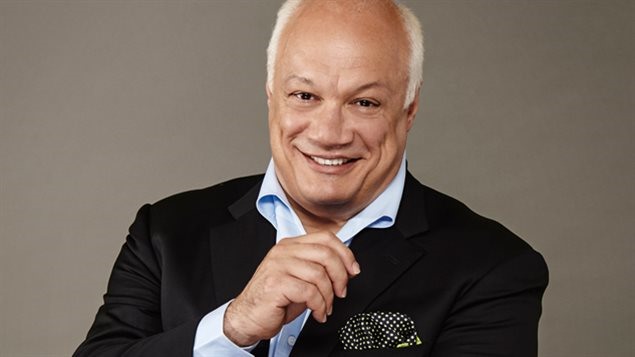 Inner Sanctum
Inner Sanctum

" />Internationally acclaimed French and Belgian author Eric-Emmanuel Schmitt recently came to Hà Nội where he met and discussed his passion for writing with his fans. The Goncourt-winning writer shares with Vương Bạch Liên his thoughts about his career and life.
 |
Internationally acclaimed French-Belgian author Eric-Emmanuel Schmitt recently came to Hà Nội where he met and discussed his passion for writing with his fans.
In the past twenty years, Schmitt has become one of the most widely read and performed French-language authors in the world. Acclaimed by audiences and critics alike, his plays have won several Molières and French Academy’s Grand Prix du Théâtre awards. Additionally, his books have been translated into 44 languages, and more than 50 countries regularly perform his plays. According to recent statistics, he is now the most studied author in French schools and colleges.
The Goncourt-winning writer shares with Vương Bạch Liên his thoughts about his career and life.
Inner Sanctum: Welcome to Hà Nội. Could you share with me your impressions about Việt Nam?
It is the first time I am in Việt Nam. But before coming here, I had the feeling that I already knew a little about the country through many of my friends living in France and Belgium who have Vietnamese origins.
My teacher of piano for 20 years is a Vietnamese-French woman. She is married to a Vietnamese man who is a teacher at the University of Lyon, France, and wrote a Vietnamese-French dictionary. I used to go to their house to meet them twice a week when I was living in the southern French city.
I also have a couple of Vietnamese friends who have a restaurant in Brussels who left Việt Nam and came to Belgium in tragic conditions. But they are brilliant, energetic and optimistic and often come back to their homeland.
I am very happy to be in Việt Nam. I remember since my first night in Hà Nội, I had bursts of laughter and I was awakened by the acute and incessant noise of this city. It is like the joyful sounds of birds…The streets of Hà Nội tell me a lot of things.
I found the country both exotic and familiar. I met energetic, respectful, calm and smiling people in Hà Nội. I am touched to see that I have lots of readers here.
Inner Sanctum: It’s true that your books are widely read in Việt Nam. But you are not only a famed novelist, but also a talented dramatist, film director and actor. How could you manage your time to do so many different things?
I don’t know…When I began my career, everyone said I was a “gifted” person because I was brilliant in studies in class and did different things. Now I am not at an age that people consider me a gifted person…
In fact, I have the feeling that I have always done the same thing … it’s telling stories. It’s the work that I love. The most beautiful gift that life offered to me, is to allow me to devote myself to writing stories. I tell stories in my books. I tell stories on the stage by writing theatre plays. Also, I sometimes tell stories when I play on the stage.
For me, a writer has to entertain, but he also has to touch readers and make them reflect.
I write stories, but people also say that I write fables that are stories, have a meaning and make people reflect.
Inner Sanctum: You are internationally known through your book Oscar and the Lady in Pink. During a survey in 2004, the French people said that book changed their lives. This is an exception for a book by a living author — the book was mentioned in the survey, along with other masterpieces such as Little Prince and The Three Musketeers. Where did you get the idea to write a book about a sick child’s final days?
As you know, Oscar and the Lady in Pink is a book about a sick child. He suffers from leukemia and cancer. And his days are numbered; he has only a few days to live. And the book features his 12 final days which are illuminated by a woman, the Pink Lady, who teaches him to live to the end and accept death.
When I wrote the book, I wrote for personal reasons. I didn’t lose a child, I reassure you right away. But I have accompanied my friends and relatives in sickness and the death. So as an adult, I often went to hospitals.
But, when I was a child, I used to spend a lot of time in hospitals. I was not sick but my father cared for patients. He was a doctor. And my father gave me a strange education. He took me to hospitals with him, every Thursday and Saturday, so that I was with him and I discovered life.
I can say that this strange education gave me lot of things. Because when I saw a lot of sick people, I thought that to be sick is normal, and to be in good health is not normal. And that was very good. Because when we know that we are weak, vulnerable, and mortal, we can be less violent, less aggressive, and we are better. I think that to have a higher morality, one must be aware of the fragility of the other, and the fragility of oneself.
I am not aggressive at all… I believe that this come from this childhood time spent in hospitals. I cannot beat someone, it is impossible for me.
When I brought the book to the publishing house, I told myself that this book could not please anyone. Because it focuses on two taboos: A sick child and a child who dies. I was convinced that my book would not have any success. To my big surprise, it achieved worldwide success. It is studied in schools in many countries. They called it another Little prince.
I believe I had to write this book because a lot of people needed to read it.
The book is a way to talk about serious things in a dedicated, poetic and funny way.
It’s a philosophical novel, like many of my other books. Now that I am a jury member of the Goncourt [the most prestigious literary award of France], I am aware that I am the only person who writes such works.
Inner Sanctum: As I know, you also wrote autobiographies?
Yes, two.
Several years ago, I wrote a book which had lots of success in Europe and in Japan: My Life with Mozart. I told about my life with Mozart and explained how Mozart saved my life.
When I was 15 years old, I was depressed (typical for an adolescence) and I wanted to die. I had planned everything. And one day a teacher took me to the opera in Lyon, where I was taking part in a repetition of Les Noces de Figaro (an opera of Mozart). And at the moment, when a woman began to sing, I was healed… A healing thanks to the beauty of singing. At that moment I told myself, if there were such beautiful things on the stage, I would stay on earth.
And in the book, I tell readers about how Mozart sent me messages in my life, consoled me, gave me energy and joy when I didn’t have them. Sometimes we are so sad that we cannot cry. But we should begin to cry. And Mozart helped me to cry.
The book is composed of letters that I sent to Mozart, and the CDs which are answers from Mozart. So readers have to read the book, listen to the music and then come back and read the book.
And then last year I wrote an autobiographic book which had a huge success in France, which is entitled La Nuit de Feu (Night of Fire). I told about my trip in the Sahara desert. I arrived in the desert as an atheist, and I came out a believer.
I became lost in the middle of the desert. I spent 34 hours in the mountainous and rocky desert. I did not have anything to eat or drink. I was worried because I know that one can die if he does not drink for 3 days. However, I spent a night under the stars and it was the most beautiful night of my life. I had a true mystic experience. And after that night, I was ready to die and to live… A night which changed my existence and allowed me to become the writer that I want to be. I wrote before, but I was not satisfied with my books.
Inner Sanctum: As a writer, how do you define “a good book”?
A good book is a book that you want to read again just after you finished it. I mean that it is a book which leaves a trace, an imprint, and which helps you live better, and better understand things.
A good book makes you want to say thanks to the author, rather than say "Bravo!"
Before becoming a writer, I was a professor of philosophy. And now I remain a philosophical writer. For me, a good book has to make life better, make men better, and more tolerant. No book can change the world, but a book can totally change a person.— VNS




